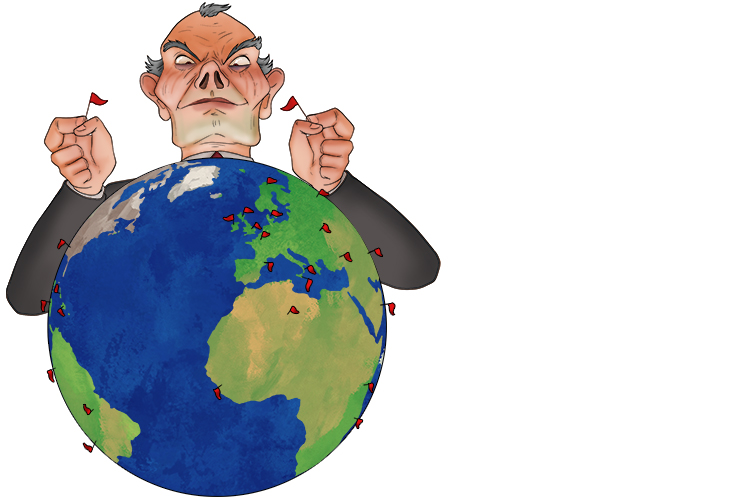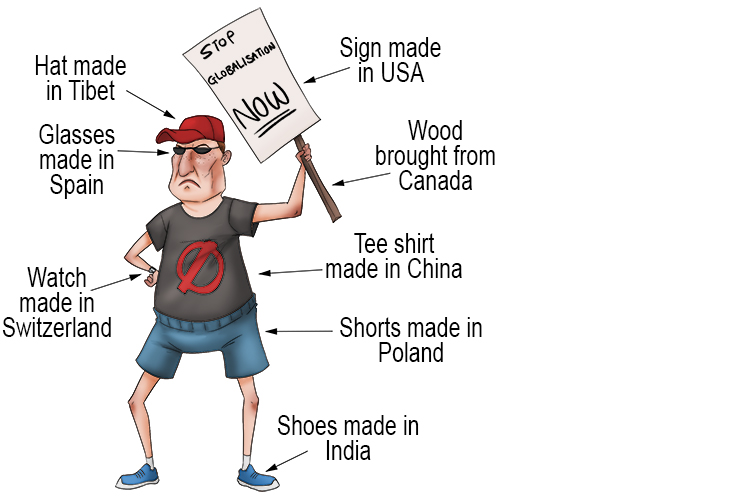Globalisation – The trend for large businesses to operate on a worldwide scale; money, goods and services can be transferred across national borders
(Pronounced glow-buhl-ai-zay-shn)
To remember what globalisation means use the following mnemonic:
The company is a global organisation (globalisation), they do business on a worldwide scale.

Globalisation can present huge opportunities for businesses, such as creating new revenue streams by accessing new markets, and cheaper production costs by outsourcing manufacturing abroad.
It’s becoming increasingly easy to trade abroad as transportation and communication improve. There is more freedom to trade, fewer wars in countries and more governments that believe in free trade. We are more interconnected and large growth allows for economies of scale (savings).
The biggest companies are no longer national firms but multinational companies with branches in many countries. Sometimes these multinational or global companies even change where their head office is in order to pay a smaller amount of tax.
Companies such as Apple, Microsoft or Amazon are so global, so big, that they create more income (turnover) than many countries’ GDP (the total market value of all goods or services sold in a country over a period of time). In other words, they have larger economies than some nations. This could not be achieved without globalisation, which is having an impact on everyone worldwide.





